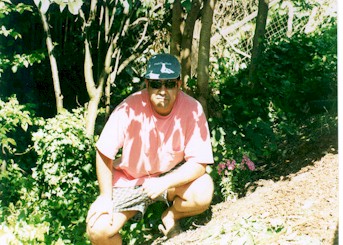Uricon
"Today the Roman and his trouble
Are ashes under Uricon."










From top:
Ariston Men Hudor: Water is the chief of elements, i.e., as in being the origin of all things. (In classical mythology, Oceanus and Tethys were regarded as the parents of all the deities who preside over Nature.) Of Greek origin, a Georgian addition over the Roman Baths.
A tombstone to a fallen Roman soldier (an armourer?) raised by subscription by his fellows.
Braided bun, high fashion c. 100.
Lost Roman ring-stones from Bath drains. What heartache each loss must have caused the wearer.
Bas-relief (of supplicant?) from temple.
Original Roman era lead piping under the stones of Bath. The heavy seam seal shows water must have flowed under high pressure through this 'plumbing.' Plumbum is Latin for lead, it along with the Greek μολυβδος [molybdos] is borrowed from the same older language, from which the Georgian prpeni, brpeni = lead, tin, and the Baskian berán (beruna) might also be derived. The linguist van Windekens proposes that Pelasgian, a prehellenic Aegean language, was the donor language and unclosed the root *b(o)lub. Other see a proto-Iberian language as the donor of both words, since the Iberian peninsula is rich in lead. Some have also tried to locate the Latin plumbum with the help of Indogermanic languages in the suffix -bho-, often used for the names of animals and colours; thus to trace plumbum back to pl-on-bho and to include it in the family of the Greek πελιος [pelios] = bluish-black. Others see both these names derived from the Sanskrit bahu mala = very dirty. Unlike the Romans, the Indians may have suspected it to be toxic.
Roman temple courtyard statue, Bath.
More statues. This area had a vaulted ceiling in Roman times, brightly painted in gold, blue and red, lit by torches.
King's Bath -- in medieval times, monks would bring down the sick to the arched cubicles in this inner courtyard and administer to them the waters.
Today's streets around the old Bath structure.
Are ashes under Uricon."
From top:
Ariston Men Hudor: Water is the chief of elements, i.e., as in being the origin of all things. (In classical mythology, Oceanus and Tethys were regarded as the parents of all the deities who preside over Nature.) Of Greek origin, a Georgian addition over the Roman Baths.
A tombstone to a fallen Roman soldier (an armourer?) raised by subscription by his fellows.
Braided bun, high fashion c. 100.
Lost Roman ring-stones from Bath drains. What heartache each loss must have caused the wearer.
Bas-relief (of supplicant?) from temple.
Original Roman era lead piping under the stones of Bath. The heavy seam seal shows water must have flowed under high pressure through this 'plumbing.' Plumbum is Latin for lead, it along with the Greek μολυβδος [molybdos] is borrowed from the same older language, from which the Georgian prpeni, brpeni = lead, tin, and the Baskian berán (beruna) might also be derived. The linguist van Windekens proposes that Pelasgian, a prehellenic Aegean language, was the donor language and unclosed the root *b(o)lub. Other see a proto-Iberian language as the donor of both words, since the Iberian peninsula is rich in lead. Some have also tried to locate the Latin plumbum with the help of Indogermanic languages in the suffix -bho-, often used for the names of animals and colours; thus to trace plumbum back to pl-on-bho and to include it in the family of the Greek πελιος [pelios] = bluish-black. Others see both these names derived from the Sanskrit bahu mala = very dirty. Unlike the Romans, the Indians may have suspected it to be toxic.
Roman temple courtyard statue, Bath.
More statues. This area had a vaulted ceiling in Roman times, brightly painted in gold, blue and red, lit by torches.
King's Bath -- in medieval times, monks would bring down the sick to the arched cubicles in this inner courtyard and administer to them the waters.
Today's streets around the old Bath structure.


0 Comments:
Post a Comment
<< Home